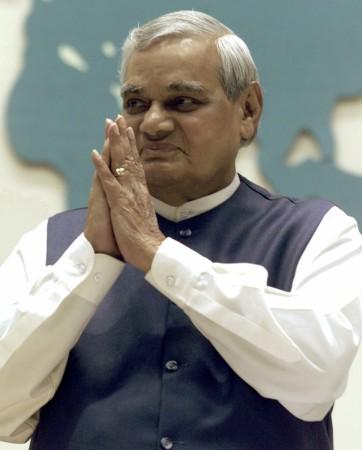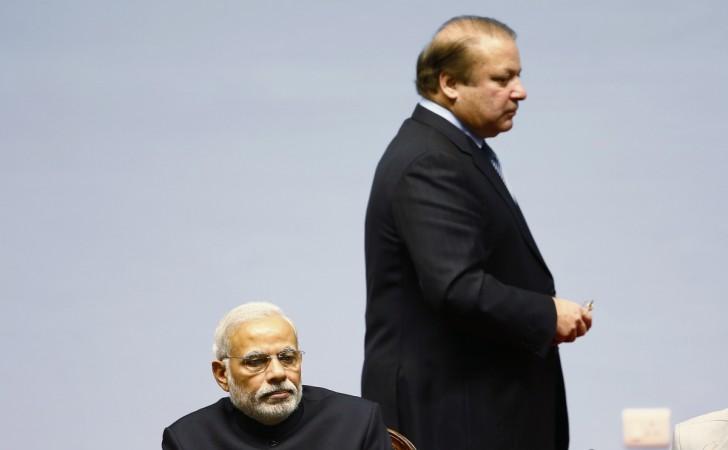![[Representational image] India-China ties](https://data1.ibtimes.co.in/en/full/639129/india-china-ties.jpg?w=649&h=399&l=50&t=40)
Foreign policy-makers in India always have an easy option to exercise before anything else: to boycott. Be it Pakistan or China, New Delhi finds it convenient to take an unrelenting position, shutting all possibilities of looking forward. For the self-obsessed nationalists who live in today, this sort of coercive diplomacy might look apt but in reality, such obstinacy only isolates India and harms its self-interests.
Take for example, the mega summit which was held in Beijing recently to launch China's massive One Belt One Road (OBOR) or Belt and Road Initiative (BRI) was shunned by India for it thought China's move doesn't augur well for others' sovereignty and economy. For India, the OBOR/BRI is nothing sort of an effort by Beijing to expand its own spheres of influence, especially in its neighbourhood in Asia.
New Delhi is particularly apprehensive of the fact that the China-Pakistan Economic Corridor (CPEC), one of the flagship parts of OBOR/BRI, will see a significant portion running through Pakistan-occupied Kashmir. This is certainly not happy news for the Narendra Modi government.
What will an adamant position on China bring India?
But having said it, what will India's boycott policy achieve? It will certainly not succeed in stopping China from going ahead with its geo-economic strategy of expanding its spheres of influence.
On the other hand, taking an adamant position will only encourage the Chinese and Pakistanis to get closer. Why didn't India do the opposite instead? The only way it can safeguard its interests when it comes to Chine is by befriending that nation and not treat it solely as an enemy.
We Indians can learn from the US. The only superpower of the world doesn't have a great relation with China. Thanks to historical reasons, Washington and Beijing didn't have a consistent relation.
There were instances when Richard Nixon and Henry Kissinger initiated the rapprochement with Mao De Zong's China while there were also occasions when the Chinese snubbed Barack Obama or Donald Trump took on the Dragon quite regularly or had a talk to Taiwan's president, putting Beijing in utter discomfort. Washington and Beijing also have found themselves at odds over developments in the Korean Peninsula.
But the political frictions between the two countries have never hampered their economic relations. China is the second-largest trading partner of the US, much ahead of India, which the US treats as its friend to counter the Chinese in Asia. The two countries have not allowed every channel to get blocked just because they had ideological tussles historically and political and strategic fights in the current times.
Global Times's advice to India is not baseless
According to an article published in China's Global Times: "If India sees itself as a big power, it should get accustomed to the many divergences with China, and try to manage these divergences with China. Big country diplomacy is mostly all-round. It is almost impossible that two big countries can reach agreements on all things. This can be proved by the many differences between China and the US. But China and the US have maintained smooth bilateral relations, from which New Delhi can learn." Just what we tried to say.
Recall how Atal Behari Vajpayee had made progress in India's China relations
But the Modi government could not put up a brave face despite stoking fires of nationalism in the country's domestic politics. One can recall on this occasion the historic visit of Atal Behari Vajpayee to China in June 2003. It was significant from several angles.

The Vajpayee government had succeeded in making China recognise Sikkim as a part of India and within a few years, border trade began through the Nathu La pass between the two countries. Also on its side, India had recognised the Tibetan Autonomous Region as part of China's territory.
The significance of the trip of Vajpayee, who also headed a nationalist government, lied in the fact that talks can do wonders even between the most inhospitable neighbours. This is something the NDA government under Modi is lacking.
It is nothing less than an exaggeration to say that China is set to colonise in a subtle fashion. If we are fine with the Americans' coca-colonisation, then there should not be much of a problem with the Chinese initiative either.
Being fiercely ambitious, it is no surprise that the Chinese would have come up with such projects in some time and try to win over unequal allies like Pakistan through influence – in cash or kind. South Block should have prepared about this since long and not wait for the time to come to start blaming Beijing. That is not how diplomatic battles are fought.
India, too, has its connectivity diplomacy plans
New Delhi cannot deny the fact that it, too, has tried similar connectivity diplomacy in South Asia to increase its influence in the region and curb influences of the Chinese and corner Pakistan. It has eyed execution of Project Mausam as an answer to China's maritime silk route besides the Bangladesh-Bhutan-India-Nepal (BBIN) sub-regional connectivity project but these have not met much success.

While China has emerged as a challenge to Project Mausam, the exit of Bhutan owing to domestic compulsion from the BBIN also disrupted the plans. What's the ground for India, thus, to oppose China's plans when it itself also believes in similar visions of regional integration?
But Indian rulers have not dumped China in all spheres
India, to be frank, doesn't have any clear policy on China and the policy-makers are just playing to the gallery by hitting out at OBOR/BRI instead of doing something constructive by taking China into confidence [even the Chinese understand that they cannot ignore India in their scheme of things and invited the latter to join the summit].
Why non-BJP states have only to keep in mind 'strategic threat' from China?
Even when the Indian government is talking in terms of nationalism, Modi's pet project of building the giant statue of Sardar Patel reportedly has a China connection nor is there any resistance to the Chinese Industrial Park project near Ahmedabad. Also, Union Transport Ministry Nitin Gadkari has invited Chinese e-rickshaw manufacturers to form joint ventures with Indian companies. Even the sponsor of the Indian cricket team – OPPO – is a Chinese smartphone manufacturer.
However, at the same time, West Bengal Chief Minister Mamata Banerjee was not allowed by the Centre to set up a date with China for economic engagements. Though, when Modi was the chief minister of Gujarat, he did not stop short of visiting China even if the strategic issues were still there between the two neighbours.
India's China policy is ambiguous and opportunistic
Our China policy is not just ambiguous, it also smacks of opportunism and inconsistency. By joining China and not erecting it as an enemy only, India could see parts of its eastern region improve. In today's integrated world, competition is not without cooperation. India's policy-makers still see things in black-and-white.
The Chinese did not alienate India's 'Make in India' initiative and sent its delegation to take part in the summit here to make use of the opportunity. Why couldn't we reciprocate similarly on BRI? The faster we can get rid of the antagonist and anachronistic viewpoints in foreign policy, the better.














